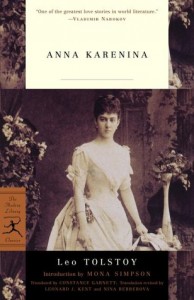
Anna Karenina has been made into a film. Again. I’m not certain how many times this new production makes, but in my opinion, it’s too many times. There is a finite
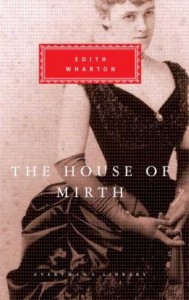
amount of women committing suicide as a legitimate solution to their problems, I can take. Romanticizing the taking of one’s existence is ingrained into society’s fabric. If the people doing it are beautiful and in many cases helpless women. Greta Garbo standing on the edge of the railroad platform ready to dive, may seem like a
dramatic and tragic ending, but in fact, if viewers were to see her remains after said train’s vicious steel wheels crushed her beautiful face to pulp, and her gorgeous costumes were clotted with skin, bone, and brain matter, how romantic would her death then seem? Sure, she had abandoned her child and husband for a lover who then tosses her aside. And the punishment for those sins in that period of history? Social disgrace, maybe even being thrown on the streets with nothing. But why must the cost of a woman’s independence in the books of that era, always seem to be death? Edith Wharton’s heroine from The House of Mirth refuses to marry, and with that decision she has doomed herself to society’s harsh and unfair treatment. As her fortunes fall and fall, she becomes a victim, of vicious lies, addiction, and lack of skills to be kept employed. Yet, she still doesn’t marry, even when offered. She dies of a drug overdose, which some claim could be accidental. I think not. Seeing no way out of her situation, she gives in. Another poor girl who feels the only choice is death. Yes, the book is a scathing look at how unfair society treats women, and I suppose, showing the despair and what women are driven to, would make sense. But why always death? She couldn’t rise above her problems and survive? I suppose not.
Hedda Gabler shoots herself. In Ibsen’s play, she is seen as either manipulative, or a victim of male society. Why can’t she be both, and more? Why unlike male counterparts must she be analyzed and considered neurotic because she wants power and does things that are cruel and unjust to get it? Many
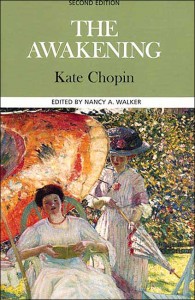
a manipulative man in literature goes on, without gun to forehead. But a women, well she can’t live with herself, or can’t live without what she wants. At least Nora, in A Doll’s House walks out on her husband. A nice door slams.

I can barely remember Madame Bovary. She poisons herself? Because? Oh, right, a man. Ophelia drown’s herself. The Awakeningby Kate Chopin’s Edna Pontilier walks into the sea. Sylvia Plath’s protagonist, Joan Gilling, commits suicide. As does Plath, a renowned poet who stuck her head in the oven to end it all. Very romantic. Another highly praised poet, Anne Sexton, turned on her car in the locked garage. We’ve gone past the literary now, and entered the real world, full of women who are romanticized,
for their work, but also for their endings. Suicide can look so appealing to a young girl who doesn’t really understand that death is death, and she won’t be around to see her friends and loved ones weeping.
The ultimate golden suicide/accidental death girl is, oh, yes, Marilyn, as in Monroe. You can’t find a more over the top romanticized life. She was a victim, poor poor Marilyn, too damaged from a young age, too helpless, too hurt, too too much. Women emulate her, from Madonna to, well whomever. And yet, what was she really? A pathetic borderline personality who was constantly late for work, couldn’t take a step without an acting coach at the ready, who had to have a man on her arm, didn’t much matter who, whose genes gave her a lush body and her extremely well oiled smarts fashioned a tone and way of speaking that is like fingers grating on a blackboard for those of us who would love to be seen as fine strong women, and to be worshiped for thosequalities. I wasn’t immune to the suicidal heroine mystique as a younger being–far from it. As age brings hindsight, I can point to those novels and films and TV shows that celebrated and romanticized the borderline girl, the one whose life was always in the

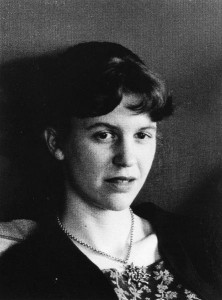
balance, who needed saving by a man, and who was the focus of the entire story. And if it didn’t end well? If the heroine dies? She’s even more the center of attention, the star. The star for a tiny minuscule bit of time, and then unless is another Marilyn, is buried and forgotten, a life ended before beginning in some cases. As today’s young girls read the classics with women who die by their own hand, I’m hoping someone nearby balances the scales, explains the historical context with which these ladies were created, and girls will find this course of action a little less appealing.
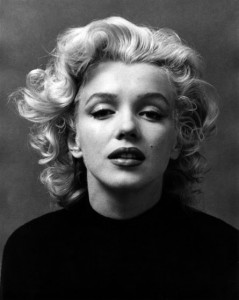

Good posting Diane. I’ve always felt that books and movies romanticizing suicide, for both men and women, as a way out was the wrong way to do it. I did a study on the Bible’s examples of suicide and in each one (there are four) it seems that hopelessness was the root cause. I say that there is always hope. It may be tough to weather through the storm but there is much to be gained by doing so.
As you said, “But why always death? She couldn’t rise above her problems and survive?” – I think that she could and would be stronger and respected, at least by some if not most, for it.